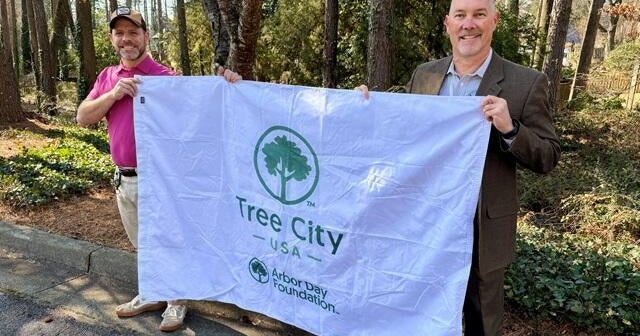New Age beekeeper looks to the trees for hive health
SEBASTOPOL -- The life of a honey bee these days is not so sweet: nearly 50 percent of them died off last year. Take your pick of reasons: Parasites, pesticides, starvation, global warming. To that, Michael Thiele, executive director of Apis Arborea (www.apisarborea.org) in Sonoma County, adds another: housing.
For him the problem, like that of a certain former U.S. president, is boxes.
"Something didn't feel right," Thiele said about the usual tools of the beekeeper. "I used that regular bee box that the beekeeper had given to me and there was something about it that made me wonder whether there were maybe other ways of housing bees -- other ways of beekeeping."
That was the beginning of Apis Arborea. At his home near Sebastopol, Thiele met with KPIX to talk about his organization.
"I co-founded a honeybee sanctuary in 2007. It was focused on alternatives to mainstream beekeeping. We decided we wanted to really integrate bio-mimicry and allow bees to live the way they have lived for millions of years -- which is in trees," Thiele explained.
Yes, trees. Not white boxes.
"It's really challenging to witness that conventional (beekeeping) system," Thiele continued. "Because, when you look at those boxes, you pretty much realize that they were not designed with the well-being of an animal in mind. The design originates from the 1850s but it's too cold, it's too large. An apicultural system that is commercialized and mechanized is not paying attention to the animal but really paying attention to profit and other systems. It's not at all natural. The annual mortality rate is up to 68 percent of honeybees in boxes. Imagine over 2 million hives every year! And just in the United States! And 68% of them -- over 1 million of them -- poof! Gone every year. Compare that to honeybees living in the wild and remote areas where the average lifespan is over six years."
Asked if these data will be heartbreaking for people who keep bees and think they're doing the right thing, Thiele buried his head in his hands.
"Oh, my. Yes. Heartbreaking. Heartbreaking is exactly the right word."
Thiele's organization has designed tree nests which mimic the nest attributes and conditions of wild honeybees.
"We are just bringing that wisdom, that million-year-old wisdom, back into a design that also reflects their needs and that provides conditions for their well-being and survival and health," he said.
The nests are fashioned from partially hollowed-out cross-sections of logs. The process requires chisels and chainsaws and routers accompanied by plenty of grunting and sweating. The result: a borehole maybe eight inches wide running through the center of a four-foot section of log. These are dragged into the forest, hoisted dozens of feet off the ground and affixed in parallel to trees. Within a couple days, a cloud of bees had buzzed in and set up shop.
Apis Arborea has hung about 150 of the tree nests throughout Northern California and they're studying the results of the deployment.
"The goal is to go nationwide -- actually worldwide," Thiele said. "This is a large global movement that has really gained traction. We are trying to encourage others to join in and that's why we're having workshops and events -- to get the idea started that we have to change what we're doing. We actually have no choice but to change so that, together, we can transform a system that really has no future."
There was one obvious question for Thiele, who has often laid his hand on top of a thrumming throng of wriggling bees inside the nests: Do you ever get stung?
"Rarely," he replied. "The more you move with them -- with their life gestures -- the more you integrate bio-mimicry, the less they're getting upset because something is moving with them and not against them. It feels like shaking hands with your hearts, with your best friend ever."
After seeing Thiele's devotion to bees and their well-being, you wonder if the feeling might be mutual.







